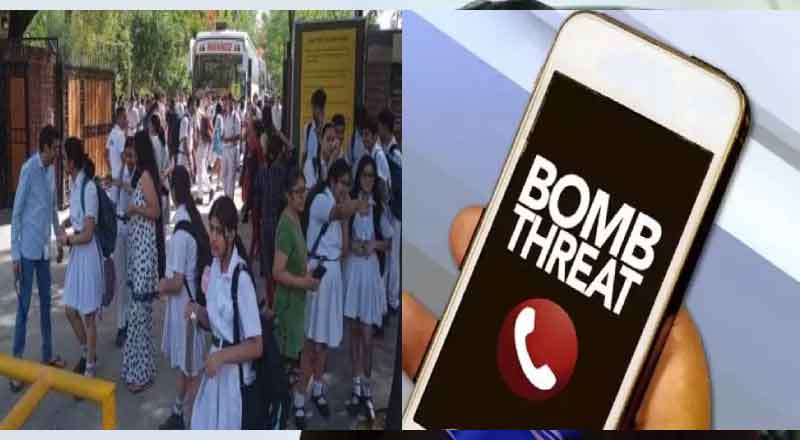- Several schools in Ahmedabad, found themselves in a state of alarm on Monday as they received threatening emails similar to those that had recently rattled schools in Delhi.
- The emails, originating from the Russian domain “mail.ru,” echoed the ominous warnings that had sparked panic in the city.
- Prompted by the menacing communications, authorities swiftly mobilized, dispatching police units to investigate the targeted schools.
- Despite the heightened tension, no signs of suspicious activity or explosive devices were discovered on the premises of schools such as DPS and Anand Niketan.
- The email address, ‘sawariim@mail.ru,’ contained verses from the Quran and bore linguistic markers associated with the Islamic State (IS) propaganda, hinting at a potential extremist connection.
- This unsettling development comes in the wake of a series of bomb threats that gripped over 100 schools in Delhi just days prior.
- As authorities delve into the intricate web of digital footprints and geopolitical implications surrounding these threats, the safety and security of educational institutions remain paramount.
Several schools in Ahmedabad, Gujarat, found themselves in a state of alarm on Monday as they received threatening emails similar to those that had recently rattled schools in Delhi. The emails, originating from the Russian domain “mail.ru,” echoed the ominous warnings that had sparked panic in the capital.
Prompted by the menacing communications, authorities swiftly mobilized, dispatching police units to investigate the targeted schools. Despite the heightened tension, no signs of suspicious activity or explosive devices were discovered on the premises of schools such as DPS and Anand Niketan.
This unsettling development comes in the wake of a series of bomb threats that gripped over 100 schools in Delhi just days prior. The common thread linking these incidents is the origin of the threatening emails from a server based in Russia, indicating a potentially coordinated effort to sow fear and disruption.
Further exacerbating concerns, sources revealed that all the targeted schools received identical emails, bearing stark resemblance to the threatening communications circulated during the Delhi scare. Screenshots of the emails have circulated on social media platforms, amplifying public anxiety.
Delving deeper into the investigation, law enforcement officials uncovered unsettling details about the email sender. The email address, ‘sawariim@mail.ru,’ contained verses from the Quran and bore linguistic markers associated with the Islamic State (IS) propaganda, hinting at a potential extremist connection.
As authorities delve into the intricate web of digital footprints and geopolitical implications surrounding these threats, the safety and security of educational institutions remain paramount. The recurrence of such incidents underscores the pressing need for robust cybersecurity measures and collaborative efforts to thwart malicious intent aimed at disrupting the fabric of society.
(With inputs from agencies)





